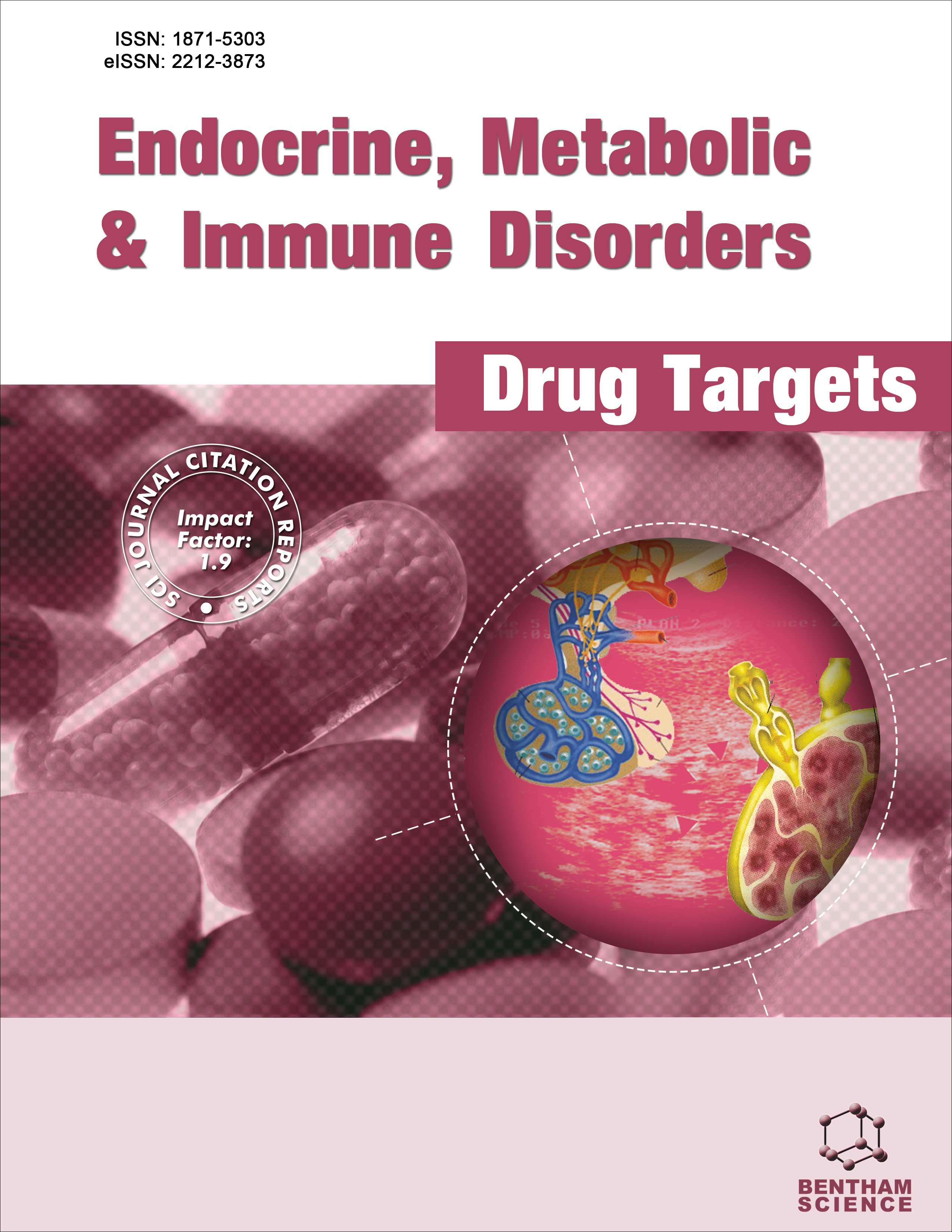-
s Effect on Adipose Tissue of Diabetic Mice Supplemented with n-3 Fatty Acids Extracted from Microalgae
- Source: Endocrine, Metabolic & Immune Disorders-Drug Targets (Formerly Current Drug Targets - Immune, Endocrine & Metabolic Disorders), Volume 20, Issue 5, Jun 2020, p. 728 - 735
-
- 01 Jun 2020
Abstract
Background: Type 2 Diabetes Mellitus (T2DM) is considered a chronic noncommunicable disease in which oxidative stress is expected as a result of hyperglycaemia. One of the most recent approaches is the study of microalgae fatty acids and their possible antioxidant effect. Objective: This study aimed to analyse the effect of supplementation with n-3 fatty acids extracted from microalgae on the total antioxidant capacity (TAC) and lipid peroxidation of adipose tissue and plasma from diabetic (db/db) and healthy (CD1) mice. Methods: Mice were supplemented with lyophilized n-3 fatty acids extracted from microalgae or added to the diet, from week 8 to 16. TAC assay and Thiobarbituric Acid Reactive Substances assay (TBARS) were performed on adipose tissue and plasma samples. Results: The supplementation of lyophilized n-3 fatty acids from microalgae increased the total antioxidant capacity in adipose tissue of diabetic mice (615.67μM Trolox equivalents vs 405.02μM Trolox equivalents from control mice, p<0.01) and in the plasma of healthy mice (1132.97±85.75μM Trolox equivalents vs 930.64±32μM Trolox equivalents from modified diet mice, p<0.01). There was no significant effect on lipid peroxidation on both strains. Conclusion: The use of n-3 fatty acids extracted from microalgae could be a useful strategy to improve total antioxidant capacity in T2DM.


